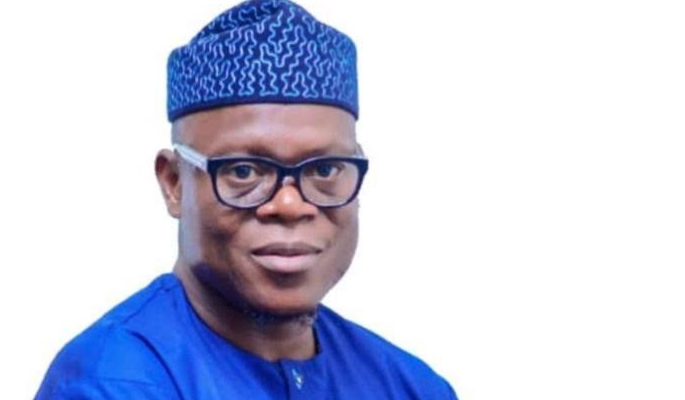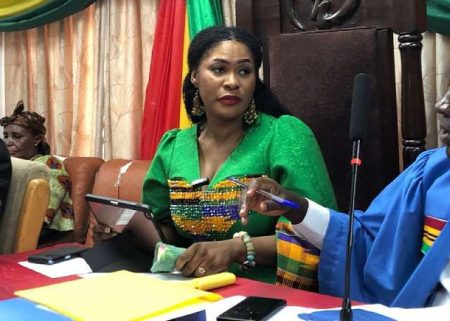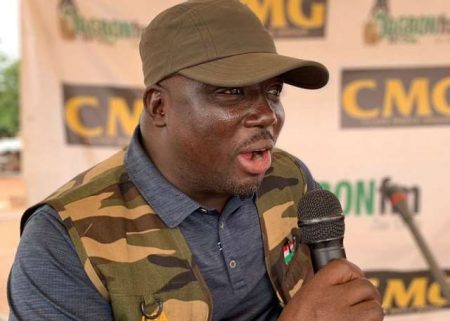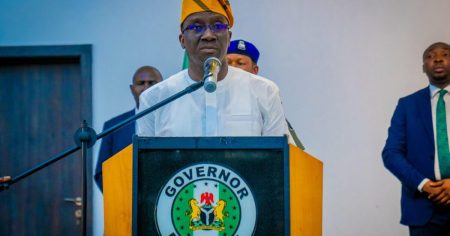Paragraph 1: Ganduje’s Resignation and APC’s Stability
The resignation of Abdullahi Ganduje from his position as National Chairman of the All Progressives Congress (APC) has sparked speculation about potential instability within the party. However, Senator Ajibola Basiru, the APC National Secretary, has firmly dismissed these concerns, asserting that Ganduje’s departure will not trigger any crisis. Basiru emphasized that Ganduje’s contributions to the party were significant, particularly in strengthening its administrative framework and attracting new states into the fold. He pointed out that resignations are not uncommon in political organizations, citing the previous departures of Senator Abdullahi Adamu and Senator Iyiola Omisore, which paved the way for his and Ganduje’s own appointments. Thus, Ganduje’s resignation is viewed as a routine transition rather than a sign of internal discord.
Paragraph 2: Ganduje’s Legacy and Smooth Transition
Under Ganduje’s leadership, the APC witnessed notable growth, with several states joining the party’s ranks. Basiru lauded Ganduje’s efforts in repositioning the party and highlighted the administrative improvements made during his tenure. These achievements, coupled with the party’s experience with previous leadership transitions, suggest that the APC is well-equipped to handle Ganduje’s exit smoothly. The party’s official statement commending Ganduje for his service further reinforces the narrative of a respectful and amicable departure. This organized transition indicates that the APC leadership remains focused on its political agenda and is not anticipating any major internal disruptions.
Paragraph 3: Addressing Speculation and Rumors
Basiru’s comments aimed to quell anxieties and dispel rumors surrounding Ganduje’s resignation. He characterized the speculation about an impending crisis as unfounded, emphasizing the party’s history of managing leadership changes effectively. By comparing Ganduje’s resignation to the previous departures of Adamu and Omisore, Basiru aimed to normalize the event and portray it as a standard procedural matter within the APC. This direct approach sought to reassure party members and the public that the APC remains a unified and stable political force.
Paragraph 4: Adeleke’s Potential Defection and Tinubu’s Influence
Beyond addressing concerns about Ganduje’s resignation, Basiru also addressed rumors of Osun State Governor Ademola Adeleke’s potential defection from the Peoples Democratic Party (PDP) to the APC. Basiru firmly denied these rumors, stating that such a move is currently not on the table. However, he acknowledged the APC’s appeal as a “beautiful bride” for potential newcomers, suggesting that the party remains open to attracting new members. Intriguingly, Basiru emphasized his loyalty to President Bola Tinubu and indicated that Tinubu’s decisions on such matters would be paramount.
Paragraph 5: Tinubu’s Authority and Basiru’s Allegiance
Basiru’s deference to Tinubu’s authority underscores the president’s significant influence within the APC. While Basiru himself harbors gubernatorial ambitions in Osun State, he made it clear that Tinubu’s judgment on political strategies, including potential defections, would be the deciding factor. This declaration highlights the hierarchical structure within the APC and Tinubu’s role as a key decision-maker. Basiru’s willingness to follow Tinubu’s lead “blindly” reflects his deep trust in the president’s political acumen and commitment to the party’s best interests.
Paragraph 6: Strategic Considerations and Party Unity
The combination of Ganduje’s departure and the speculation surrounding Adeleke’s potential defection provides insight into the dynamic political landscape within Nigeria. While the APC leadership downplays any immediate impact from Ganduje’s resignation, the situation remains delicate. The emphasis on Tinubu’s authority suggests a concerted effort to maintain party unity and discipline. The decision to publicly address rumors about Adeleke, even to deny them, indicates the APC’s awareness of the potential impact of such narratives. This proactive approach aims to control the narrative and prevent any misinformation from destabilizing the party’s image or internal cohesion.














